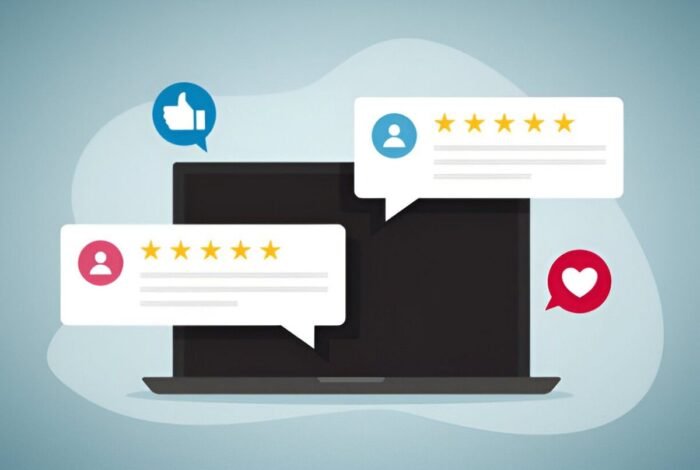In today’s interconnected world, maintaining a positive brand reputation isn’t just an option—it’s a necessity. Brands are scrutinized more than ever before, with customer reviews, social media, and online forums influencing public perception. To navigate these waters effectively, businesses rely on reputation management software. These tools can monitor brand sentiment, respond to feedback, and ensure your online presence aligns with your brand values. After researching extensively, I’ve compiled an overview of the top reputation management software available and how they can help your brand thrive.
Understanding Reputation Management Software
Reputation management software is designed to help businesses track, influence, and manage their online reputation. These tools gather data from various sources—review sites, social media platforms, and news outlets—to give brands a comprehensive view of how they’re perceived. By leveraging these insights, businesses can address negative feedback, promote positive reviews, and maintain consistent brand messaging.
Why Reputation Matters
A good reputation fosters trust, which is the cornerstone of any successful business. Positive brand sentiment leads to higher customer loyalty, better conversion rates, and increased revenue. Conversely, a poor reputation can drive potential customers away and harm existing relationships. Reputation management software ensures you’re proactive rather than reactive, giving you control over your brand’s narrative.
Key Features to Look For
Before diving into specific software options, it’s essential to know what features to prioritize:
- Monitoring: The ability to track brand mentions across multiple platforms in real time.
- Sentiment Analysis: Tools that analyze the tone of feedback, differentiating between positive, neutral, and negative mentions.
- Review Management: Centralized dashboards to respond to customer reviews efficiently.
- Social Media Integration: Monitoring and engagement tools for platforms like Twitter, Facebook, and Instagram.
- Reporting: Customizable reports that provide actionable insights.
- Automation: Features that automate repetitive tasks, such as review requests or standard responses.
Top Reputation Management Software
Here’s an in-depth look at some of the most effective tools available today:
1. Birdeye
Birdeye is a comprehensive reputation management platform that excels in review management and customer engagement.
- Key Features:
- Centralized review management.
- Real-time brand mention alerts.
- Automated review solicitation via email and SMS.
- Pros:
- User-friendly interface.
- Effective sentiment analysis.
- Excellent customer support.
- Cons:
- Higher cost for smaller businesses.
- Limited customization options in reporting.
| Feature | Birdeye |
|---|---|
| Monitoring | Yes |
| Sentiment Analysis | Yes |
| Review Management | Comprehensive |
| Social Media Integration | Limited |
| Pricing | $$ |
2. Brand24
Brand24 focuses on media monitoring and social listening, making it an excellent choice for brands active on social platforms.
- Key Features:
- Social listening tools.
- Advanced sentiment detection.
- Competitor analysis.
- Pros:
- Affordable for small businesses.
- Detailed analytics.
- Integration with major social media platforms.
- Cons:
- Less robust review management.
- Occasional delays in alerting.
| Feature | Brand24 |
|---|---|
| Monitoring | Extensive |
| Sentiment Analysis | Advanced |
| Review Management | Basic |
| Social Media Integration | Extensive |
| Pricing | $ |
3. Yext
Yext specializes in online presence management, ensuring consistent business information across directories.
- Key Features:
- Business listing synchronization.
- Review monitoring and response.
- Analytics and reporting tools.
- Pros:
- Excellent for multi-location businesses.
- Highly customizable features.
- Strong integration capabilities.
- Cons:
- Pricing may deter small businesses.
- Steep learning curve for beginners.
| Feature | Yext |
|---|---|
| Monitoring | Moderate |
| Sentiment Analysis | Basic |
| Review Management | Advanced |
| Social Media Integration | Limited |
| Pricing | $$$ |
4. Podium
Podium is designed to improve customer interactions and encourage positive reviews.
- Key Features:
- Real-time chat functionality.
- Automated review invitations.
- Centralized communication hub.
- Pros:
- Simplifies customer communication.
- High response rates to review requests.
- Easy-to-navigate dashboard.
- Cons:
- Limited to review and communication tools.
- Higher costs for advanced features.
| Feature | Podium |
|---|---|
| Monitoring | Moderate |
| Sentiment Analysis | Limited |
| Review Management | Excellent |
| Social Media Integration | Basic |
| Pricing | $$ |
5. Reputation.com
Reputation.com offers an all-in-one solution, making it ideal for large enterprises.
- Key Features:
- Multi-channel feedback collection.
- AI-driven sentiment analysis.
- Detailed performance reports.
- Pros:
- Scalable for businesses of all sizes.
- In-depth reporting features.
- Reliable automation capabilities.
- Cons:
- Expensive for small businesses.
- Requires onboarding assistance.
| Feature | Reputation.com |
|---|---|
| Monitoring | Extensive |
| Sentiment Analysis | Advanced |
| Review Management | Comprehensive |
| Social Media Integration | Extensive |
| Pricing | $$$$ |
Comparison Table
| Software | Best For | Price | Key Strength | Key Weakness |
|---|---|---|---|---|
| Birdeye | Review Management | $$ | Automation | Cost for Small Businesses |
| Brand24 | Social Listening | $ | Analytics | Limited Review Tools |
| Yext | Multi-location Brands | $$$ | Listings Consistency | Steep Learning Curve |
| Podium | Customer Interaction | $$ | Communication Tools | Limited Features |
| Reputation.com | Enterprise Solutions | $$$$ | Scalability | High Cost |
How to Choose the Right Tool
When deciding on reputation management software, consider your business size, goals, and budget. For small businesses, affordability and ease of use may be priorities. Enterprises might require advanced features and scalability. Always opt for software that aligns with your brand’s needs.
Final Thoughts
Reputation management isn’t about suppressing negative feedback—it’s about engaging authentically and building trust. These tools offer valuable insights and efficiencies, but they’re only as effective as the strategies you implement. Choosing the right software can empower your brand to navigate the digital landscape confidently, ensuring a positive perception among customers and stakeholders. Take your time, evaluate your options, and make a choice that supports your long-term goals.





